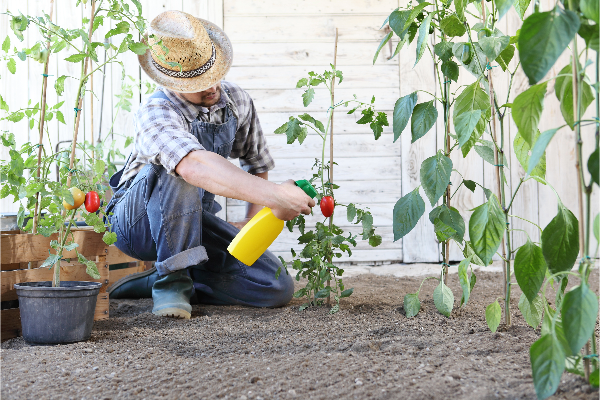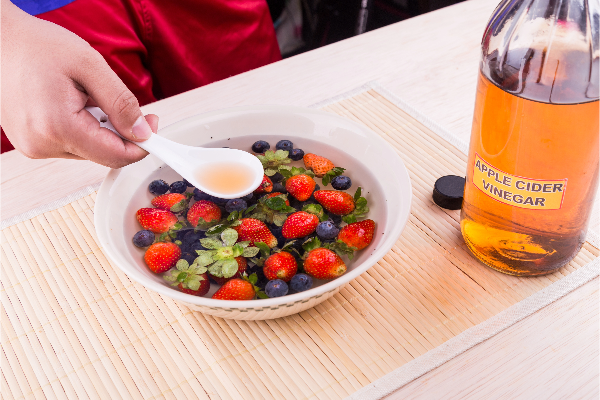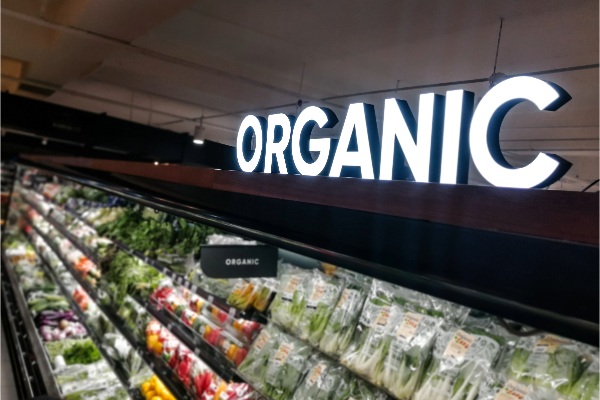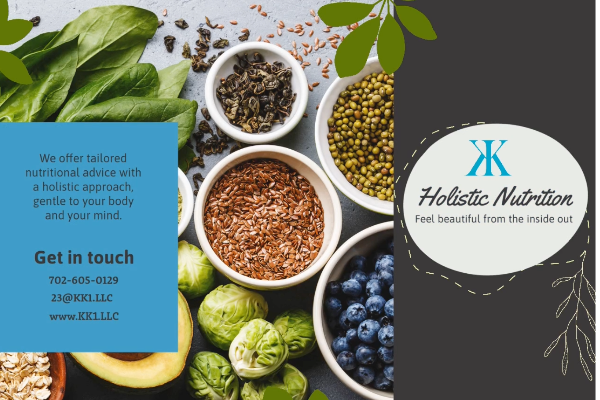Produce and Pesticides: Nourishing Your Body While Minimizing Risk
Imagine a world where you can relish the vibrant flavors and health benefits of fruits and vegetables without worrying about harmful pesticides. It's not just a dream; it's a reality that KK1 Holistic Nutrition Coach can help you achieve. In this blog, we'll delve into the importance of fruits and vegetables in our diet, the potential health risks associated with pesticides, how to clean them effectively, and best practices for making healthier choices. With the guidance of KK1 Holistic Nutrition Coach, you can embark on a journey to a healthier, pesticide-reduced diet that supports your well-being.
The Importance of Fruits and Vegetables
Fruits and vegetables are nutritional powerhouses. They provide us with vitamins like vitamin C and vitamin A, essential minerals like potassium and magnesium, and antioxidants that combat oxidative stress in our bodies. Regular consumption of these foods has been linked to healthy aging, reduced risk of chronic diseases such as heart disease and diabetes, and overall improved well-being.
However, as we embark on a journey to include more fruits and veggies in our diets, we must consider how they are grown and whether they contain pesticides. Pesticides are chemical substances used in agriculture to protect crops from pests and diseases. While they serve a crucial purpose in farming, their presence in our food can pose health risks.
The Importance of Fruits and Vegetables
Fruits and vegetables are nutritional powerhouses. They provide us with vitamins like vitamin C and vitamin A, essential minerals like potassium and magnesium, and antioxidants that combat oxidative stress in our bodies. Regular consumption of these foods has been linked to healthy aging, reduced risk of chronic diseases such as heart disease and diabetes, and overall improved well-being.
However, as we embark on a journey to include more fruits and veggies in our diets, we must consider how they are grown and whether they contain pesticides. Pesticides are chemical substances used in agriculture to protect crops from pests and diseases. While they serve a crucial purpose in farming, their presence in our food can pose health risks.
Health Risks Associated with Pesticides
The extensive use of pesticides globally, estimated at nearly six billion pounds per year, raises concerns about potential health implications. Here are some of the health problems associated with pesticide exposure:
Hormone Disruption: Certain pesticides can disrupt our hormonal balance, leading to a range of health issues.
Skin, Eye, and Lung Irritation: Direct contact with pesticides can cause skin, eye, and lung irritation, especially for farmworkers and individuals handling these chemicals.
Brain and Nervous System Toxicity: Some pesticides have neurotoxic properties, which can harm the brain and nervous system.
Cancer: Pesticides have been linked to cancer risk, making it imperative to minimize exposure.
Chronic Effects: Repeated exposure to pesticides can result in blood disorders, reproductive effects, nerve disorders, and birth defects.
Tips on How to Clean Fruits and Vegetables
Now that we understand the potential risks, it's crucial to know how to minimize them through proper cleaning:
Rinse Thoroughly: Wash all produce under running water, even if you plan to peel them. Use a brush for items with thicker skins, like potatoes.
Use Vinegar Solution: A mixture of vinegar and water (1 part vinegar to 3 parts water) can help remove pesticide residues. Soak your produce for a few minutes and then rinse them.
Peel When Appropriate: Peeling can reduce pesticide exposure, but you may lose some nutrients and fiber in the process.
Buy Organic: Organic produce is grown with fewer synthetic pesticides, making it a safer choice if it fits your budget.
Eco-Friendly Eating: Your Guide to Sustainable Farming Practices
Supporting sustainable and pesticide-reduced farming practices is not only good for your health but also for the environment. Here are some best practices to consider:
Choose Organic: Opt for organic produce when possible, to support farming methods that use fewer chemicals.
Balanced Soil Management: Encourage crop rotation and natural soil improvement methods instead of relying solely on chemical fertilizers.
Sustainable Farming: Look for products from farms that prioritize sustainable practices, such as using organic fertilizers like compost and repurposing manure to enrich the soil.
Partner with KK1 Nutrition Coach for a Pesticide-Free Journey to Harvest Health!
As you embark on your journey to a healthier, pesticide-reduced diet, remember that you don't have to go it alone. KK1 Holistic Nutrition Coach is here to guide you every step of the way. With their expertise, you can make informed choices about the fruits and vegetables you consume, ensuring that you nourish your body while minimizing risks. Together, we can create a world where the benefits of produce are fully realized without the worry of harmful pesticides. Contact KK1 Holistic Nutrition Coach today and start your path to a healthier, more vibrant life. Free Consultation
When you subscribe to the blog, we will send you an e-mail when there are new updates on the site so you wouldn't miss them.










Comments